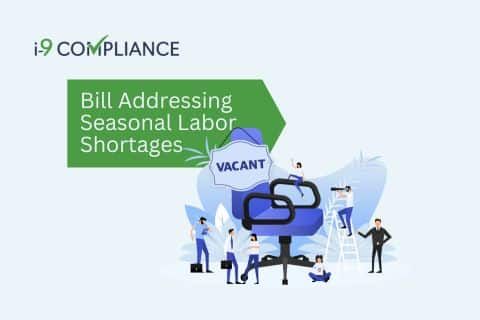U.S. Senators Introduce Bill Addressing Seasonal Labor Shortages

August 16, 2023
A group of U.S. Senators recently introduced a bill to allow state governors to petition the federal government. This petition would include supplemental H-2B visas beyond the regular statutory limit of 66,000. In addition, it would allow states with a shortage of seasonal workers a far greater ability to provide employers access to needed labor.
Senators John Thune, Pete Ricketts, and John Hickenlooper introduced this bill. They called it the State Executive Authority for Seasonal Occupations Needing Additional Labor (SEASONAL) Act. This bill would allow state governors to petition the federal government to access additional H-2B visas beyond the national cap. However, the Act would require these states to have an employment rate at or below 3.5 percent for a minimum of nine of the previous 12 months.
According to Sen. Thune, inaction by the federal government should not stop state leaders from doing what they can to strengthen their economies. Furthermore, labor needs have become a problem in nearly every sector in South Dakota. This struggle is why he proudly introduced this legislation with the others. They hope to reduce labor shortages and reinforce worker protections in one Act.
In addition, Sen. Ricketts stated that it would help Nebraska and other similar states. He explained it would allow them to acquire more temporary workers, addressing the states’ critical labor shortages. It would also improve their economies.
Senator Hickenlooper also mentioned Colorado’s widespread worker shortages. He explained the shortages have worsened over the last few years due to the lack of available visas. This bill would provide “more flexibility to advocate for the workers they need” and allow states to meet labor demands better.
If this bill passes, governors could petition the federal government for additional H-2B visas. Employers needing workers for construction, housekeeping, landscaping, and other nonagricultural jobs rely on this visa to fill the labor gap. However, the authority to request these additional visas would expire in four years unless Congress chooses to reauthorize it.
Additionally, state legislatures could place limits on supplemental visas requested, such as:
- “Limiting the number of such visas that may be requested in a fiscal year; and
- Limiting the allocation of such visas to H–2B nonimmigrant workers who are employed—
- Within such State;
- Within specified Standard Occupational Classification Groups; or
- Within specified Economic Development Districts.”
The supplemental workers a state obtains must comply with existing or future Department of Labor Requirements. Moreover, the bill would require a joint annual report from the Secretary of Homeland Security and the Secretary of Labor detailing the program’s utilization and outcomes. It must include specified wages, displacement of domestic workers, and whether it led to increased economic growth and productivity.
This bill would help many employers by increasing the availability of workers. When hiring visa workers, employers must complete the employment eligibility verification (Form I-9) process. Unfortunately, this process has proven challenging due to the available documentation H-2B workers may present. The best way to ensure correctly completed Form I-9s is by using an electronic I-9 management system. This system guides employers throughout the process, stores forms and additional documentation, and provides alerts when to take action.
Ensure compliance today by switching to an electronic I-9 management tool with I-9Compliance.